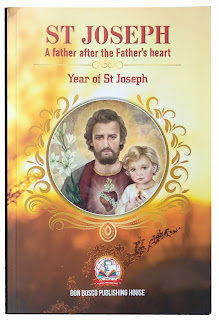The Varieties of Religious Experience (Book Review)
William James, The
Varieties of Religious Experience, New
York : Simon and Schuster Inc., 1997, pp. 416, $8.
 The book contains a series of lectures James delivered at
the
The book contains a series of lectures James delivered at
the
The twenty lectures are concised into 14 chapters. They are:
Religion and Neurology, Circumscription of the Topic, The Reality of the
Unseen, The Religion of Healthy-Mindedness, The Sick Soul, The Divided Self and
the Process of its Unification, Conversion, Saintliness, The Value of
Saintliness, Mysticism, Philosophy, Other Characteristics and Conclusions. Each
chapter reveals James’ rigourous empiricism and pragmatism. They contain his
findings and reflections besides giving texts, sometimes very voluminous ones,
from different sources. These help clarify the point and are sometimes used to
make a point.
The book is interesting. The regular quotations may cause
one to lose interest and give in to the temptation to skip over these passages
but doing so will only leave one the worse for it. The chapters on Conversion,
Saintliness and Mysticism were my favourites. The conclusions James arrives at
are sometimes startling and at other times prosaic. The book, I would think is
best suited for those interested in studying the religious life from a rational
perspective. Religious-minded people may find in it some sort of explanation
but may not be wholly satisfied. In a letter to a friend James described his
aim: “to defend... ‘experience’ against ‘philosophy’ as being the real backbone
of the world’s religious life... and to make the hearer or reader believe, what
I myself invincibly believe, that, although all the special manifestations of
religion may have been absurd, yet the life of it as a whole is mankind’s most
important function.”


Comments
Post a Comment